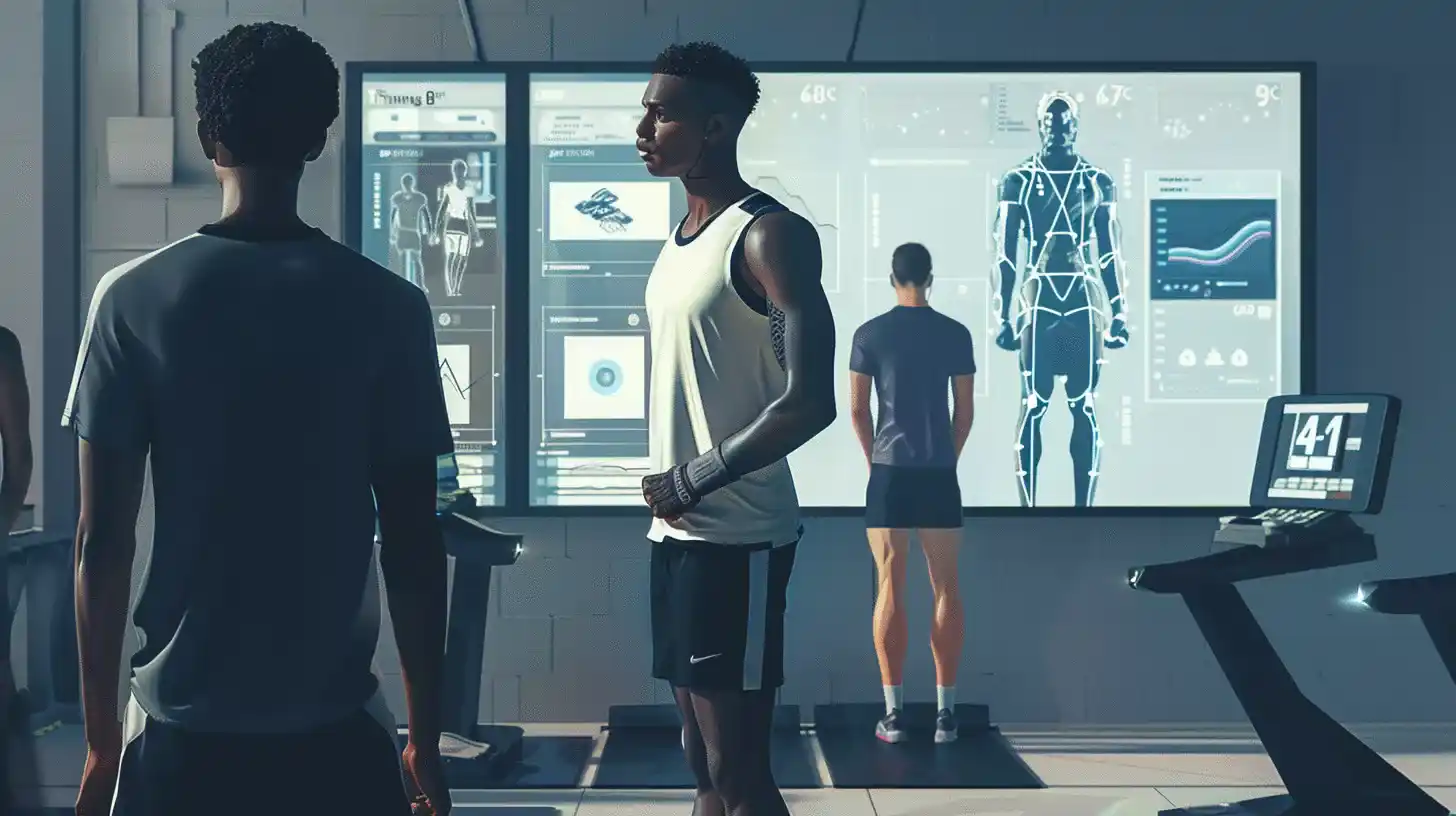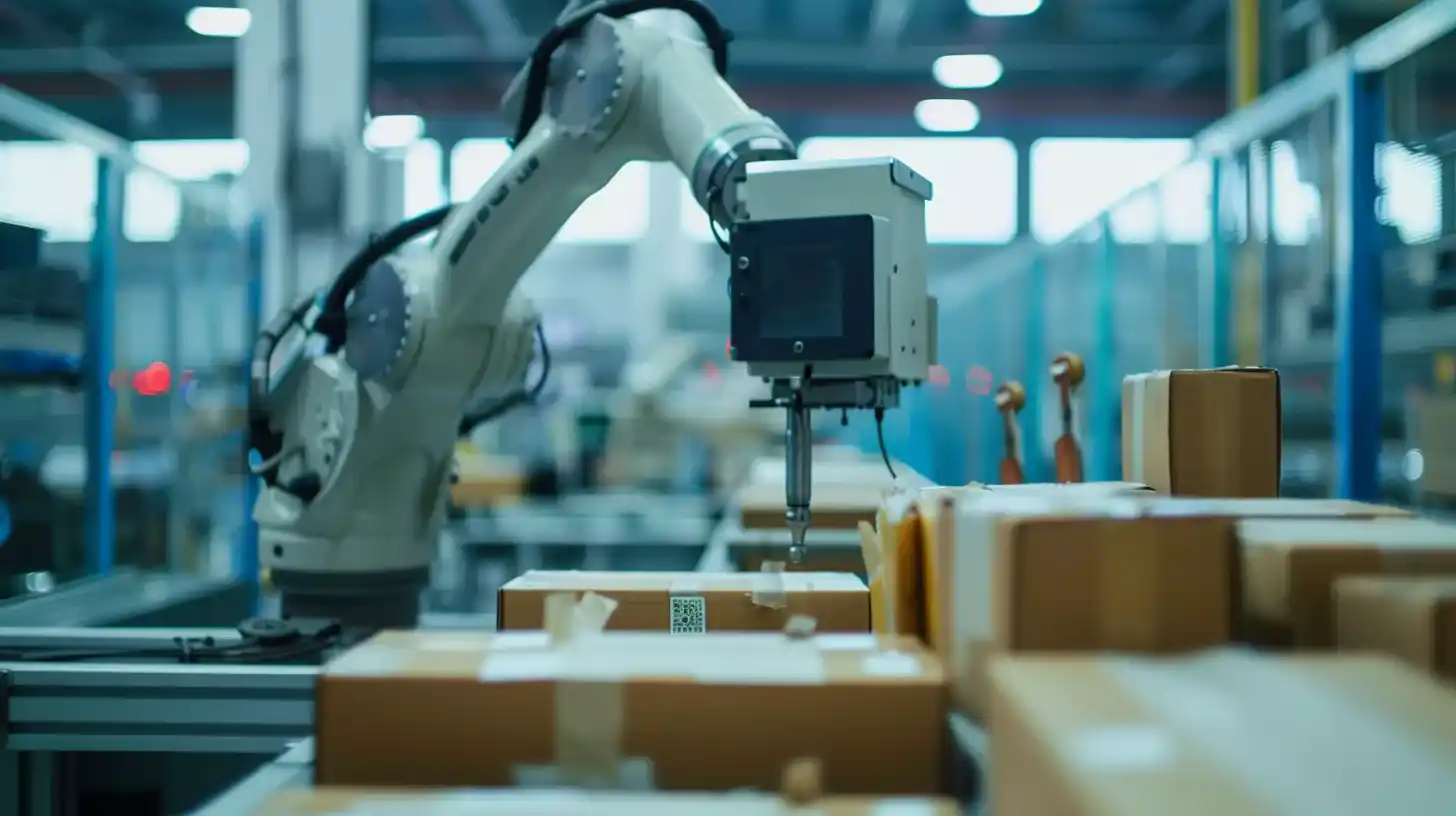Table of Contents
AI is being discussed in meeting rooms every single day as more companies look to work out how artificial intelligence and machine learning can be introduced to their businesses to make big improvements.
Some industries have the feeling that those who don’t embrace Artificial Intelligence might be leaving themselves at a disadvantage in the future, so there are a lot of people researching how to get the most out of it, and in some industries, this is already taking hold. Of course, it is more obvious how Artificial Intelligence will help some tech-based businesses, and others have more of a challenge incorporating the technology.
AI Tech Innovations in the Industries
Sports

Sports is a fascinating example and Artificial Intelligence is making waves in the sports industry, too. Coaches and athletes are using AI to gain a competitive edge and this is a world of marginal gains where even tiny incremental changes can make a big difference. For example, AI can analyze an athlete’s performance in real-time, providing insights into areas for improvement. Wearable devices equipped with AI track metrics that can be measured also help with the training side of things.
Teams also use Artificial Intelligence to scout talent in new and interesting ways or even spot things not necessarily seen by other scouts. A football team trying to find the strongest WR player in the NFL might be able to use the incredible volume of data to get a better understanding of player performance, plus, by analyzing vast amounts of data on player performance, Artificial Intelligence can identify promising players who might be overlooked by traditional scouting methods. This data-driven approach helps teams make better decisions during drafts and trades.
Some huge sports teams are putting a lot of money into this pursuit and even creating custom machine-learning options to better understand the specifics of their industry.
Enhancing the fan experience is on the agenda in the sports industry, too. AI-driven chatbots and virtual assistants provide fans with real-time information about games, and there’s even the option for things like personalized content, such as highlights and recommendations based on viewing history. A better fan experience keeps fans engaged and coming back for more, which allows the industry to thrive.
Manufacturing

This is a broad industry, of course, but it is all about efficiency and quality, and both of these areas can be assisted by Artificial Intelligence. Companies want to produce better items, and they want to do it faster to get a competitive edge.
For top businesses working in the manufacturing sector, the journey to find out how AI can help has been underway for a long time, as they know how important it is. Artificial Intelligence is driving significant improvements in efficiency and quality control and also reducing some of the need for human involvement (this brings its debates). AI-powered robots and systems perform repetitive tasks with precision and speed, reducing errors and increasing productivity. Robotics can be a big investment but systems can work around the clock without fatigue, which means higher output and lower costs.
Artificial Intelligence is also enhancing quality control. Advanced AI systems equipped with computer vision, which effectively lets the item visually inspect things, can check products for defects faster and more accurately than human inspectors using cameras.
Equipment breakdown is a big deal in loads of industries and maintenance is another area where Artificial Intelligence can make a big difference. By analyzing data from sensors on machinery or even just wear and tear, Artificial Intelligence can predict when equipment is likely to have issues so people can step in and schedule maintenance before a breakdown occurs. This minimizes downtime and extends the lifespan of expensive machinery.
Retail and E-Commerce

Over the years, people have been astounded by some of the incredible personalization and recommendations in the world of retail and e-commerce. Amazon has been recommending items with algorithms for a long time but they have only become more advanced. Sellers and e-commerce businesses are using AI to improve the shopping delivery experience and streamline aspects of the company.
The tech can even ensure your favorite items are always in stock – Artificial Intelligence is also transforming other aspects of this industry, such as inventory management. Retailers use AI to forecast demand more accurately and spot trends such as seasonal boosts, ensuring they have the right products in stock without overordering. This reduces waste (so it is eco-friendly) and improves customer satisfaction.
Physical stores can benefit, too, Artificial Intelligence-powered cameras and sensors help with everything from monitoring foot traffic to reducing shoplifting. Some stores are experimenting with cashier-less checkouts, where systems track what customers pick up and charge them automatically, making shopping faster and more convenient.
If you’ve been to a store online before and wondered how it seems to know what you want to buy, this is probably a complex algorithm doing a lot of work to get to grips with consumer behavior.
Conclusion
There’s an argument that Artificial Intelligence will change pretty much every single industry out there. Some find it easier to integrate and have data-based systems that make this simple. For instance, statistics in sports can be fed into machine learning to make accurate predictions or analyses of a player’s abilities.
Plenty more uses of the technology are likely to be uncovered and implemented as AI becomes part of everyday life.





